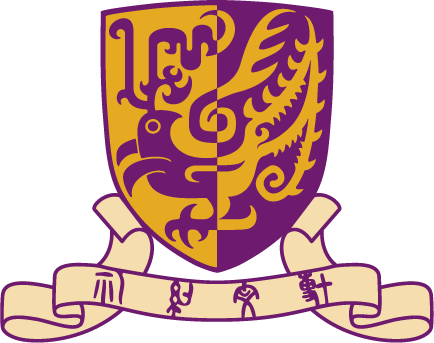Education
| 2008 | DPhil, University of Oxford |
| 2005 | MPhil, The University of Hong Kong |
| 2003 | BSc, The University of Hong Kong |
Position
- Professor, School of Life Sciences
- Director, Biology Programme (BIOL)
- Double Major in Biology and Chemistry Programme (DMBC)
- Director, MSc in Biodiversity, Environmental Management, Sustainability and Technology (BEST)
- Simon F.S. Li Marine Science Laboratory (MSL)
- State Key Laboratory of Agrobiotechnology (SKLA)
- Institute of Environment, Energy and Sustainability (IEES)
- Institute of Future Cities (IOFC)
- New Asia College (NAC)
Research Interests
- Arthropod and insect biology, Cnidarians, Invertebrates, Animal-plant interactions
- Sesquiterpenoid hormones, microRNAs
- Marine biotechnology, Molecular ecology and conservation of biodiversity
- Evolutionary biology, Genomics
Representative Publications
Full Publication List
^ = contributed equally ; * = corresponding author
- Li C^, Chan KK^, Nong WY^, Chen SS^, So WL, Qu Z, Wu HY, Yip HY, Chan CB, Tobe SS, Bendena WG, Kai ZP*, Hui JHL*. (2024). Insect metamorphosis is regulated differently between sexes by members of a microRNA cluster. eLife.
- Law ST^, Yu Y^, Nong WN^, So WL, Li Y, Swale T, Ferrier DE*, Qiu JW*, Qian PY*, Hui JHL*. (2023). The genome of the deep-sea anemone Actinernus sp. contains a mega-array of ANTP-class homeobox genes. Proceedings of the Royal Society B, 290, 20231563.
- Lee IH^, Nong WY^, So WL^, Cheung CK, Xie Y, Baril T, Yip HY, Swale T, Chan SK, Wei YY, Lo N, Hayward A, Chan TF, Lam HM, Hui JHL*. (2023). Sex-dependent responses to temperature in the common yellow butterfly Eurema hecabe. BMC Biology, 21, 200.
- So WL^, Nong WY^, Xie Y^, Baril T^, Yao MH, Qu Z, Haimovitz J, Swale T, Gaitan-Espitia JD, Lau KF, Tobe SS, Bendena WG, Kai ZP, Hayward A*, Hui JHL*. (2022). Myriapod genomes reveal ancestral horizontal gene transfer and hormonal gene loss in millipedes. Nature Communications, 13, 3010.
- Nong WY^, Yu Y^, Aase-Remedios M^, Xie Y, So WL, Li Y, Wong CF, Baril T, Law ST, Lai SY, Haimovitz J, Swale T, Chen SS, Kai ZP, Sun X, Wu Z, Hayward A, Ferrier DE*, Hui JHL*. (2022). Genome of the ramshorn snail Biomphalaria staminea - an obligate intermediate host of schistosomiasis. GigaScience, giac012.
- Nong WY^, Qu Z^, Li YQ^, Barton-Owen T^, Wong AY^, Yip HY, Lee HT, Narayana S, Baril T, Swale T, Cao J, Chan TF, Kwan HS, Ngai SM, Panagiotou G, Qian PY, Qiu JW, Yip KY, Ismail N, Pati S, John A, Tobe SS, Bendena WG, Cheung SG, Hayward A, Hui JHL*. (2021). Horseshoe crab genomes reveal the evolutionary fates of genes and microRNAs after three rounds (3R) of whole genome duplication. Communications Biology, 4, 83.
- Qu Z^, Yiu WC^, Yip HY^, Nong WY^, Yu CW, Lee IH, Wong AY, Wong NW, Cheung FK, Chan TF, Lau KF, Zhong S, Chu KH, Tobe SS, Ferrier DE, Bendena WG, Hui JHL*. (2020). MicroRNA clusters integrate evolutionary constraints on expression and target affinities: the miR-6/5/4/286/3/309 cluster in Drosophila. Molecular Biology and Evolution, 37(10), 2955-2965.
- Qu Z^, Nong WY^, So WL^, Barton-Owen T^, Li YQ^, Leung TC, Li C, Baril T, Wong AY, Swale T, Chan TF, Hayward A, Ngai SM, Hui JHL*. (2020). Millipede genomes reveal unique adaptation of genes and microRNAs during myriapod evolution. PLOS Biology, 18(9), e3000636.
- Nong WY^, Cao JQ^, Li YQ^, Qu Z^, Leung TC, Sun J, Swale T, Yip HY, Qian PY, Qiu JW, Kwan HS, Bendena WG, Tobe SS, Chan TF, Yip KY, Chu KH, Ngai SM, Tsim KY, Holland PW*, Hui JHL*. (2020). Jellyfish genomes reveal distinct homeobox gene clusters and conservation of small RNA processing. Nature Communications, 11, 3051.
- Nong WY^, Law ST^, Wong AY, Baril T, Swale T, Chu LM, Hayward A, Lau DT, Hui JHL*. (2020). Chromosomal-level reference genome of the incense tree Aquilaria sinensis. Molecular Ecology Resources, 20(4), 971-979.
- Hui JHL* (2018). Copepod incompatibilities. Nature Ecology and Evolution. 2(8). 1203-1204.
- Qu Z, Bendena WG, Nong WY, Siggins KW, Noriega F, Kai ZP, Zang YY, Koon AC, Chan HY, Chan TF, Chu KH, Lam HM, Akam M, Tobe SS, Hui JHL* (2017). MicroRNAs regulate the sesquiterpenoid hormonal pathway in Drosophila and other arthropods. Proceedings of the Royal Society of London B, 284, 1869.
- Kenny NJ, Sin YW, Hayward A, Paps J, Chu KH, Hui JHL*. (2015). The phylogenetic utility and functional constraint of microRNA flanking sequences. Proceedings of the Royal Society of London B, 282(1803), 2014983.
Research Grants
- 2025-2028, RGC RIF, EarthBioGenome Project Hong Kong: Butterflies and Next generation of scientists, $7,900,000
- 2024-2027, RGC GRF, Sesquiterpenoids in chelicerates: Farnesoic acid and methyl farnesoate as functional hormones?, $1,553,391
- 2023-2026, RGC GRF, Decoding the myriapod genomes and microRNAs to understand how evolutionary novelties arise in arthropods, $1,593,380
- 2022-2025, NSFC/RGC, Population genomics of a freshwater snail and risk assessment of imported schistosomiasis transmission, $1,185,561
- 2022-2023, CORE, Investigation of small RNA roles in a laboratory coral model under climate change, $400,000
- 2021-2024, RGC CRF, EarthBioGenome Project: Hong Kong, $3,250,000
- 2021-2022, HKB, Decoding the genome of a deep sea animal, $700,000
- 2021-2023, RGC GRF, Sesquiterpenoids in insects: MicroRNA cluster co-operation? $1,081,443
- 2020-2021, SADF, Agricultural pests commonly found in Hong Kong, $2,512,026
- 2019-2022, RGC GRF, Sesquiterpenoids in non-insect arthropods: Farnesoic acid and methyl farnesoate as major hormones in millipedes? $1,099,558
- 2019-2020, ECF, Working out the soil biodiversity of millipedes in Hong Kong, $1,121,500
- 2019-2020, RGC PROCORE, Tissue regeneration in invertebrate animals under climate change, $45,000
- 2018-2019, ECF, Development of environmental DNA (eDNA) protocol for horseshoe crabs, $499,680
- 2016-2019, RGC GRF, MicroRNA flanking sequence: a novel target for studying microRNA arm switching?, $651,203
- 2015-2016, HMRF, Distribution and current infection status of African schistosomiasis transmitting snails in Hong Kong, $99,799
- 2015-2018, RGC ECS, Regulation of the biosynthesis of sesquiterpenoid hormones by microRNAs in arthropods, $600,000
Research Contracts
- 2018-2021, AFCD, Investigate population structure and identify genetic markers for conservation of incense tree, $2,799,991
- 2018-2020, AFCD, Juvenile horseshoe crab monitoring using field surveys and environmental DNA technique in Hong Kong, $2,799,997
- 2018-2019, AFCD, Molecular analysis of animal samples, $50,000
- 2017-2021, FEHD, Zika virus surveillance and study on native Wolbachia infection in mosquitoes, $1,405,103
- 2016-2017, AFCD, Genetic study of seagrass in Hong Kong, $49,910
Teaching Grants
- 2024, RDMDF, Biodiversity genomic, transcriptomic and Sanger sequencing data management: Common practices and workshops, $99,000
- 2021-2022, CDG, Basic laboratory techniques in studying biology: species identification, dissection, field collection, molecular biology, and genetics, $99,050
- 2017-2018, CDG, Animated courseware in evolutionary biology, $95,000
Awards
- 2021, The Faculty Young Researcher Award, CUHK
- 2014, 2018, The Faculty Exemplary Teaching Award, CUHK
Others
- Advisory Council on Food and Environmental Hygiene (Working Group)
- Environmental Campaign Committee
- Fellow of The Royal Society of Biology (FRSB)
- Editorial board - Frontiers in Ecology and Evolution, Frontiers in Endocrinology, Frontiers in Genetics, Frontiers in Physiology, Frontiers in Plant Science, Journal of the Marine Biological Association of the United Kingdom, Scientific Data
- International Biology Olympiad Hong Kong Contest Steering Committee
- HKDSE Biology Subject Committee
- Genetic Modified Organisms (Control of Release) Ordinance Expert Group
- Fung Yuen Butterfly Reserve Advisory Committee
- IUCN SSC horseshoe crab specialist group
- The International Barcode of Life (iBOL) Consortium
- Hong Kong Biodiversity Genomics Consortium
- RGC S-Panel of HKPFS and JRFS




